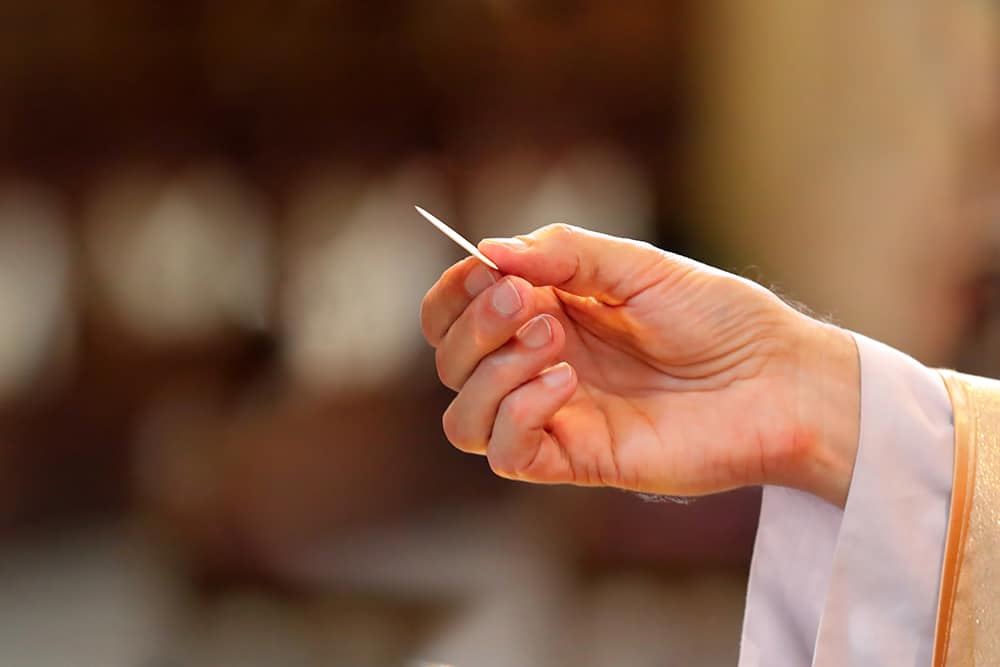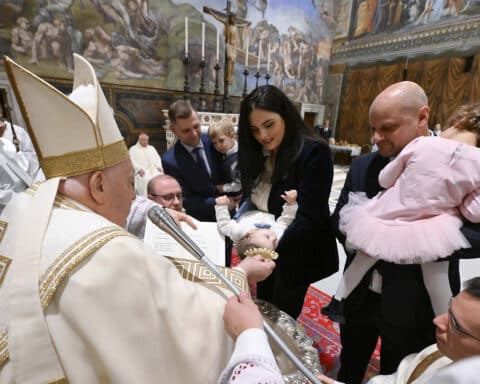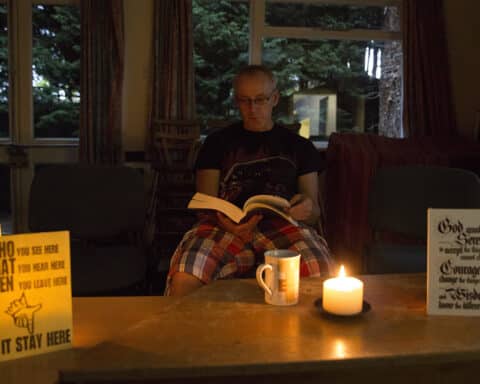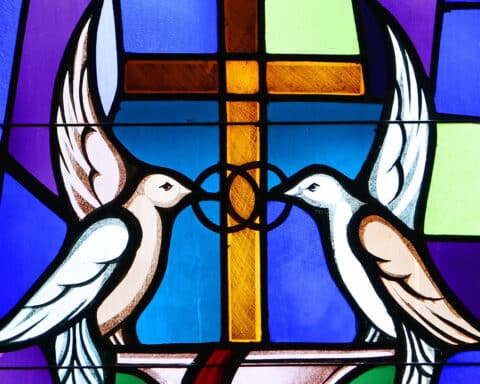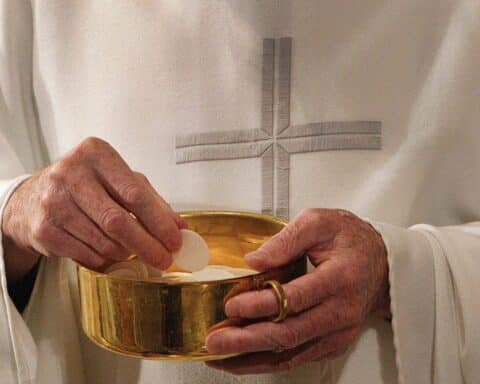
— Name, location withheld
Answer: While it is true that the faithful have a general right to have access to the sacraments, it is not an absolute right. Catholics in mortal sin should not approach Communion. Further, public and obstinate sinners can be denied access to the sacraments, and so forth. For other grave reasons, a bishop can forbid the celebration of Masses in certain areas for a certain time. And that is what we seem to be dealing with here. Public health authorities have asserted that a serious threat exists to the well-being of others and have decreed that a wide number of activities cease for the meantime, including larger public gatherings.
It is also true that the Church should generally resist attempts by the state to limit our religious liberties; but that is not what has happened here. Government officials did not single out Catholic Masses or religious activities. Rather they issued norms and later decrees limiting all public gatherings in various ways. Other things being equal, the Church, and Christians in general, have an obligation to obey just decrees by civil authorities.
We are certainly in a very unusual situation that most of us have never before experienced. We may learn many things going through this process. But for now we do well to listen to one another and be patient. We should be sympathetic to both those who have fears about the virus and to those who have sadness at the loss of the celebration of the liturgy publically. Some fairness is also due to the bishops who themselves are facing a situation unprecedented in most of their lifetimes. The varying responses reflect varying local conditions and decrees.
As for denying the sacraments in general, most dioceses have made exceptions. The faithful who are ill can still be anointed and receive Communion. Funerals, weddings and infant baptisms can still take place, though limited in most places to immediate family.
For now, we are in a difficult spot, to be sure. Pray for a miraculous intervention by God; pray for an end to the virus and extreme fear.
Guardian angels
Question: Does every person in the world have a guardian angel to guide and protect them?
— Robert Bonsignore, Brooklyn, New York
Answer: That believers, both Jewish and Christian, are under the care of the angels is clear. Psalm 91 speaks to the care of the angels for us: “For he commands his angels with regard to you, to guard you wherever you go. With their hands they shall support you, lest you strike your foot against a stone” (v. 11-12). There is also this well-known passage in which Jesus refers to guardian angels: “See that you do not despise one of these little ones, for I say to you that their angels in heaven always look upon the face of my heavenly Father” (Mt 18:10).
Opinion is divided over whether nonbelievers have guardian angels. St. Thomas says that they do, but he adds that the guardian angel has an entirely new role after baptism. Before a person’s baptism, Satan has certain “legal rights” over him, and the angels can only set limits. Baptism reverses the situation and increases the power of the angel to defend.
The term guardian is a good one. Angels are not mere servants for us; they guard us and direct us. Consider the following admonition from the Lord: “See, I am sending an angel before you, to guard you on the way and bring you to the place I have prepared. Be attentive to him and obey him. Do not rebel against him, for he will not forgive your sin. My authority is within him. If you obey him and carry out all I tell you, I will be an enemy to your enemies and a foe to your foes. My angel will go before you” (Ex 23:20-23). Hence obedience is the proper disposition toward our angels.
Msgr. Charles Pope is the pastor of Holy Comforter-St. Cyprian in Washington, D.C., and writes for the Archdiocese of Washington, D.C. at blog.adw.org. Send questions to msgrpope@osv.com.

